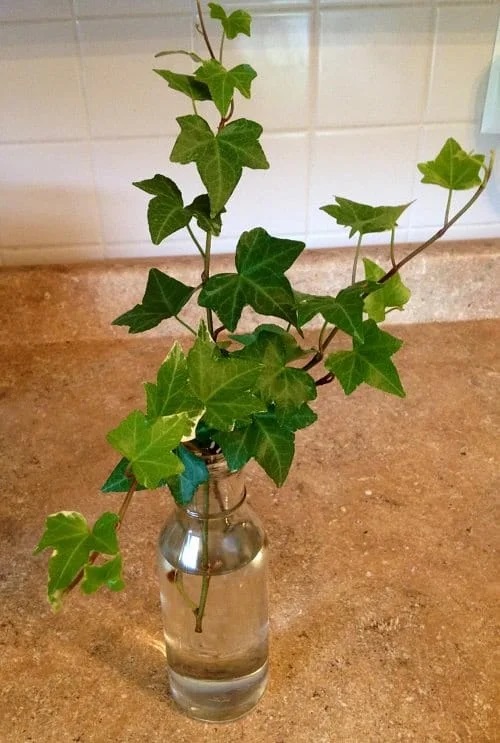Grow these 10 indoor plants from cuttings for a collection that’s both easy to maintain and pleasing to look at!
How about waking up to a green view that you’ve cultivated on your own? We have listed such vines that not only easily root via cuttings but don’t require you to tend them every now and then!
Indoor Vines that Grow from Cuttings
1. Pothos
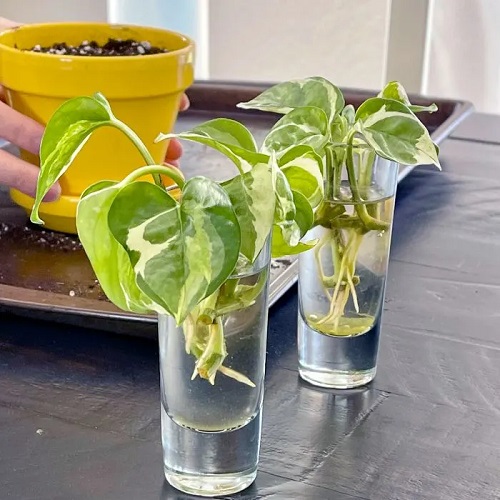
Botanical Name: Epipremnum aureum
Let’s start with the easiest-growing vine—Pothos. You’ll find it in most homes due to its super easy-going nature and adaptability to handle different light conditions. Infact, it can be your lifelong companion if you don’t commit these common mistakes.
To make more Pothos, just snip off 3-4 inches of the vine with a couple of nodes, pop it in water or soil, and watch it root. It’s almost like it’s eager to grow!
2. Heartleaf Philodendron
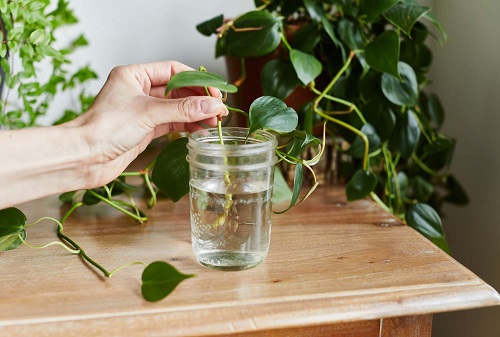
Botanical Name: Philodendron scandens
Heartleaf Philodendron has these cute heart-shaped leaves that effortlessly trail around even with little light exposure. In fact, rooting it is even simpler; just take a 3-4-inch cutting, put it in some water or soil, and in a week’s time, you’ll see roots.
3. Neon Robusta
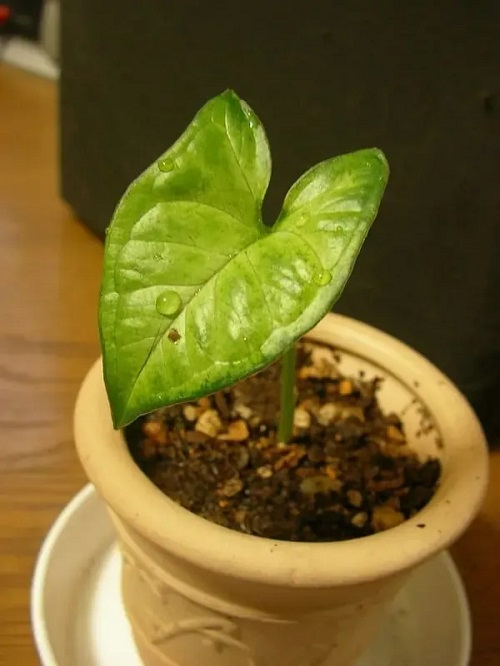
Botanical Name: Syngonium podophyllum ‘Neon Robusta’
If you’re into bright and cheerful plants, multiply this vine. Though it will root at any time of the year, spring or early summer will keep you from putting in extra effort to create a warm, cozy environment for your plant.
4. String of Hearts
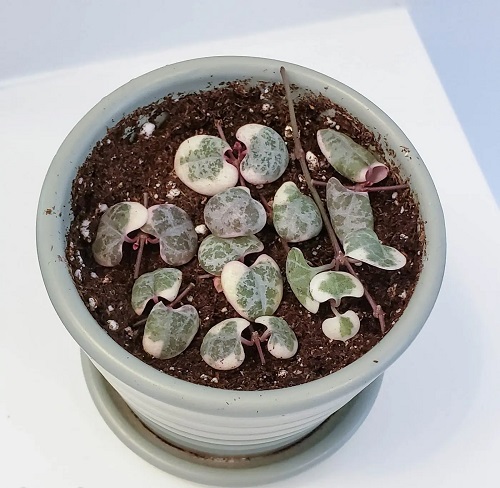
Botanical Name: Ceropegia linearis woodii
If you’re bored of those same vines trailing around the house, multiply this not-so-common beauty for your room. Cut a piece of vine with a few nodes, let it hang in water or soil, and before you know it, you’ve got new growth.
Pro Tip: Multiply a couple of these and flaunt them around with these creative ideas!
5. Sweet Potato Vine

Botanical Name: Ipomoea batatas
Sweet Potato Vine isn’t just for the garden. It’s got these lush leaves that look great indoors, too. Propagate it just like you would with other vines – cut, plant, and watch it grow. Once it develops a few true leaves, give it enough support to climb and thrive.
If you miss its vibrant purple shade, move it to a spot with a minimum of 5-6 hours of sunlight.
6. Hoya Linearis
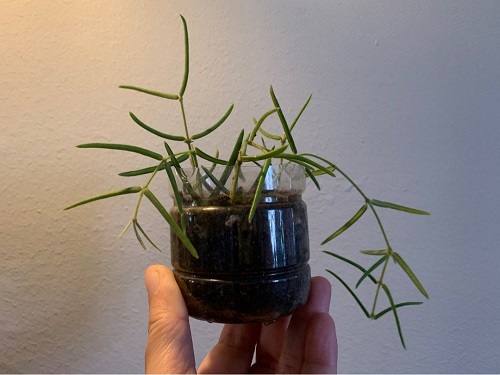
Botanical Name: Hoya linearis
Hoya Linearis is for you if you’re into the minimalist look. It has delicate vines and small leaves that will easily root in a well-draining medium without much upkeep.
Just remember not to let the medium dry out completely and provide bright indirect light, especially in the initial days, to avoid chances of rot.
7. String of Turtles
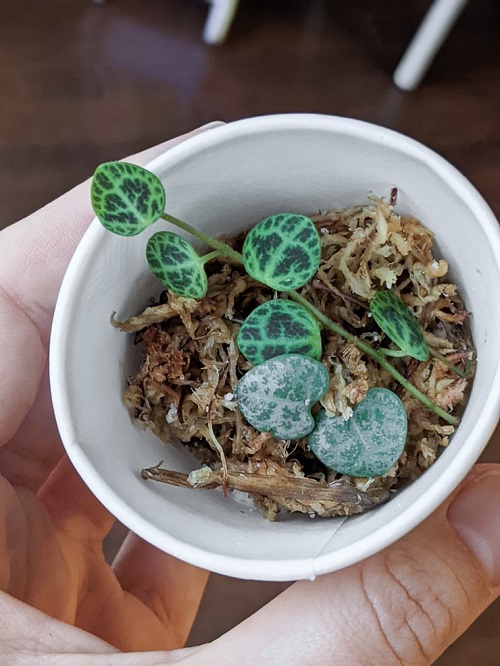
Botanical Name: Peperomia prostrata
This plant actually lives by its name with those turtle-like spots on its foliage. To have more of these, snip a few inches from a healthy vine and tuck it in a blend of peat moss or sphagnum moss and some coco peat. You’ll notice new growth in a couple of weeks.
8. Inch Plant

Botanical Name: Tradescantia zebrina
With its purple-silver stripes, the inch plant really knows how to make a statement. It grows fast and roots even faster. Snip a stem, put it in water or soil, and watch the magic happen. If using water, remember to refresh it every 3-4 days or whenever it turns muddy.
9. Rhipsalis Baccifera
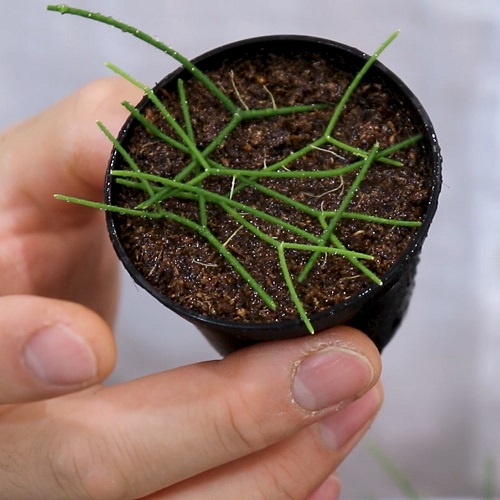
Botanical Name: Rhipsalis Baccifera
This vine is perfect if you want something rare but are not in the mood to go that extra mile. Propagation is as simple as snipping a small section with enough nodes and tucking it in a blend of coco peat and perlite. Just remember to let it callous for a day to avoid any chances or rot.
10. English Ivy
Botanical Name: Hedera helix
This classic evergreen is not just about looks; it’s a champ at cleaning the air, too. Infact, it will grow just fine even in the shadiest corners of your house. However, it is better to provide it with some indirect light in the initial days of propagation to set a healthy foundation for the plant.

